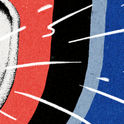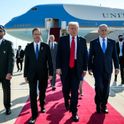Let me say at once that, like all the Muslims I know, I do not support the fatwah on Salman Rushdie. This does not mean, however, that I believe that he was right to publish The Satanic Verses. Of course, he had the right to publish, but was he right to do so?
For us Muslims, this year marks the 10th anniversary of the Rushdie affair: 1988 was the year The Satanic Verses was published in this country. For liberals, the anniversary dates from January 1989, when the book was burnt in Bradford, followed by Ayatollah Khomeini imposing a fatwah on 14th February. In this small gap lies the gulf between our perceptions.
Both sides would agree that the crisis was one of the most significant events in modern British life. It was a wake-up call for all of us. Some heard the tolling of church bells; some, the call of the muezzin; others, the resonant words of Voltaire. Most of us had to confront what it means to inhabit what we (too easily) call a multicultural society.
But in the millions of words that have been written, entrenched liberals have shown little interest in the reason why British Muslims reacted as they did. The erudite academic Bhikhu Parekh reflected on the importance of religion for disadvantaged minorities and the need for society to hold on to the idea of the sacred. A few articles tried to describe the distress of some of the protesters and the disaffection of Muslims living in deprivation.
But when the fires burned in Brixton in the early 1980s, we sent in a wise lord to tell us what lay beneath the fury. With Rushdie we did nothing of the kind. Not one survey was commissioned to discover how many British Muslims approved of the book (and there were many), or how many supported the fatwah. Among those few in the white intelligentsia who did not enlist with the pro-Satanic Verses lobby were Michael Dummett, John Le Carr?, Roald Dahl, Germaine Greer and John Berger. They all paid a price for this.
Even before publication, people such as the liberal, secular Indian journalist Khushwant Singh advised Penguin to consider the effect on Muslims of some passages in the book. The advice was ignored. Banning orders followed: India led the way in October, followed by South Africa and others. Then came the protests in Britain in November and December-ignored by the press. Some 7,000 people attended a march in Bolton on 1st December 1988, but the event that grabbed media attention was a book burning attended by some 900 people. In the months that followed, we, the Muslims of the west, began to be seen as barbarians and obscurantists. Our voices were not heard in the media. I have more than 100 newspaper cuttings from this period; barely a dozen written by Muslims. When Rana Kabbani wrote a moving, poetic response to The Satanic Verses, she was labelled "Stalinist" by Rushdie himself. We found ourselves locked out of places which (in the name of happy-clappy multiculturalism) had welcomed us before. One compensation was the first sign of intellectual awakening among British Muslims such as Kabbani, Tariq Modood, Ziauddin Sardar, Shabbir Akhthar, Akbar Ahmed and Zaki Badawi.
Globally, too, there were stirrings. Rushdie, incensed at the banning of his book in India, attacked two influential Muslim politicians-Syed Shahabuddin and Khurshid Alam Khan, in the International Herald Tribune, accusing them of fundamentalism. Both are supporters of a secular state. Shahabuddin responded in the Times of India that his country was not prepared to live by the rules of those who advocated "literary colonialism," and said that what mattered more to a nation than absolute freedom was the right to a good life with dignity, mutual respect and harmony. Even Conor Cruise O'Brien, who has since written many diatribes against Muslims, argued that the book was rightly banned in India because otherwise there would have been a "breakdown of public order." Wole Soyinka said that although he hated bannings, he too would have done the same if he had been the Indian prime minister. S Nomanul Haq, once an admirer of Rushdie, wrote in the New York Times that a responsible artist could not disregard the sensibilities of those who were both his subject matter and the bulk of his audience unless there was "mammoth justification." He also reminded Rushdie that he himself had once written a polemic in the Observer, based on this very premise, against Richard Attenborough's film Gandhi.
The limits of freedom, the responsibilities of artists (why should they claim complete freedom when our scientists are accountable?), the inheritance of decolonisation-these were the questions raised by the Rushdie debate. Two years ago, I found myself debating them in Oxford with Rushdie and Nadine Gordimer. For once, the Muslim arguments were presented not by illiterates but by intellectuals who had read the book. Although the event was chaired by the nakedly partisan Ronald Dworkin, we communicated with a modicum of respect. On my side, Ziauddin Sardar spoke of the arrogance of liberals. I argued that as a supporter of laws against incitement to racial hatred, I could not accept the position taken by free speech libertarians. Absolute free speech is an illusion; in real life there are and should be limits to all freedoms, especially in a society with huge inequalities. I asked Gordimer whether she felt free in South Africa, during the days of apartheid, to create truly hideous ANC characters in her fiction. She said yes; I remain unconvinced. As Alexander Bickett put it: "Where nothing is unspeakable, nothing is undoable."
Most of the people who were crying censorship, in fact, have a finely tuned sense of what is appropriate to say or write. An internalised censorship exists which determines what can or cannot be said about Christianity, Judaism or the royal family. The venom spat out by Bernard Levin against Muslims (whom he initially blamed for the Oklahoma bomb) or Fay Weldon's pamphlet Sacred Cows would be unthinkable if the group were black or Jewish.
For too long multiculturalism had only meant tolerance. Now, suddenly, this was not good enough for those called upon to bestow their tolerance or those previously contented to be tolerated. The battle was not between what Anthony Burgess described as ignorant "deathmongers burning a book they do not have the intelligence to understand" and enlightened western liberals. Ignorance and double standards were conspicuous on both sides. So were intelligence and passion. But if there were only two sides, where did westernised Muslims like me fit in? We became orphans; simultaneously losing liberalism, the rock of our intellectual lives, and Islam, because of the intolerant way in which it was manifesting itself.
Among British Muslims the affair prompted widespread debate. Some turned towards the politics of intifada. But now most accept that there is a need to discover how we can evolve a modern British Muslim identity. Few liberals moved that far. The main response seemed to be anxiety about whether multiculturalism was still possible. Fay Weldon, Michael Foot and Roy Jenkins all wondered what they were going to do with this alien force in their midst. (Similarly, Steven Lukes's interview with Isaiah Berlin in Prospect-October 1997-revealed a surprising hostility to multicultural ideals. Lukes asked if the Africans and Asians who came to Britain were "ready for assimilation" and Berlin replied "maybe not." The reason he gave was that, unlike the assimilation of Europeans into the US in the 19th century, most Africans and Asians have had little previous contact with the west.)
We do have mad mullahs and gullible followers in Britain, and Muslim extremists such as Mohammed Bakri who wants forced conversions. I would prefer to die in a British cell than live for one day in Iraq or Saudi Arabia. When I wrote that I thought the hijab was a questionable symbol, I received many threatening telephone calls from Muslims. Many Muslims are ashamed of such behaviour. But too many of us have become cultural and religious apologists because we cannot bear the demonisation of our people and beliefs.
Perhaps this upheaval has been good and necessary. If we had to change, so did liberals. They had to understand that multiculturalism is demanding, expensive and has its limits. Some, such as Michael Ignatieff (Prospect, April), are proposing new models of how to resolve these tensions. The ideas of Barry Buzan and Gerald Segal on a new composite global civilisation (Prospect, February), which they call "westernistic," also has exciting possibilities. It is important for any civilisation to assess periodically the values by which it lives and how negotiable they are. But in a world which is increasingly resentful of western cultural dominance, simply asserting the superiority of a particular liberal world-view is patently inadequate.
And how do we, former colonised people, live with those who once ruled our lives and continue to dominate our thoughts? I grew up under the imperial sun, clutched the Union Jack in my little hands on the day of the coronation, imbibed Shakespeare, Dickens and Mrs Gaskell. I know and love more English writers than my English husband who was brought up on the South Downs. Then came the hopes of independence and the expansion of literature to include black and other ethnic writers. Makerere University in Uganda became the crucible of intellectual and artistic excitement. Ali Mazrui blew open our thinking. We read Senghor on negritude and argued, deep into the night, whether the British or the French were the better colonisers. Then the west seemed to open up to writers like Rushdie and, later, Hanif Kureishi, people who are hybrid and enviably cosmopolitan. I burst with pride when I first read Midnight's Children. But with hindsight I wonder if there wasn't something too acceptable about these writers? All the reviewers of The Satanic Verses were white. None understood the implications of the offensive verses or could even translate the Bombay slang which peppered the book. Now ethnic minority writers have a more difficult task. We cannot claim the same freedoms as white liberals because we have obligations to our communities. But we cannot allow ourselves to be owned by those communities either, because that would be failing our own gifts. We are, most of us, children of the liberal west who are now uneasy with the implications of this position. Our aesthetics, politics and writing are all coloured by this unease. But there is a new confidence about what we are saying. You can see it in the television series, Goodness Gracious Me; you sense it in the musings of the writer Aamer Hussein and the radio plays of Rukhsana Ahmad. But I wonder if anyone will notice and whether we who have been angry for so long, will find it in our hearts to feel a sense of gratitude to a writer who opened up a box on which we had been sitting for far too long? Most of all, I wish we could all put down our weapons and talk.











